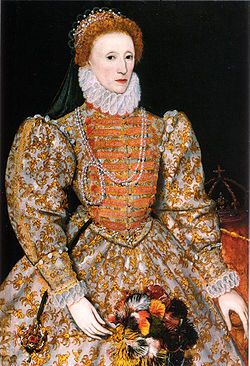The Thirteenth Amendment to the United States Constitution officially abolished and continues to prohibit slavery and involuntary servitude, except as punishment for a crime. It was passed by the Senate on April 8, 1864, passed by the House on January 31, 1865, and adopted on December 6, 1865. On December 18, Secretary of State William H. Seward, in a proclamation, declared it to have been adopted. It was the first of the Reconstruction Amendments.
President Lincoln was concerned that the Emancipation Proclamation, which outlawed slavery in the ten Confederate states still in rebellion in 1863, would be seen as a temporary war measure, since it was based on his war powers and did not abolish slavery in the border states.
History
The first twelve amendments were adopted within fifteen years of the Constitution’s adoption. The first ten (the Bill of Rights) were adopted in 1791, the Eleventh Amendment in 1795 and the Twelfth Amendment in 1804. When the Thirteenth Amendment was proposed there had been no new amendments adopted in more than sixty years.
During the secession crisis, but prior to the outbreak of the Civil War, the majority of slavery-related bills had protected slavery. The United States had ceased slave importation and intervened militarily against the Atlantic slave trade, but had made few proposals to abolish domestic slavery, and only a small number to abolish the domestic slave trade. Representative John Quincy Adams had made a proposal in 1839, but there were no new proposals until December 14, 1863, when a bill to support an amendment to abolish slavery throughout the entire United States was introduced by Representative James Mitchell Ashley (Republican, Ohio). This was soon followed by a similar proposal made by Representative James F. Wilson(Republican, Iowa).
Eventually the Congress and the public began to take notice and a number of additional legislative proposals were brought forward. On January 11, 1864, Senator John B. Henderson of Missouri submitted a joint resolution for a constitutional amendment abolishing slavery. The abolition of slavery had historically been associated with Republicans, but Henderson was one of the War Democrats. The Senate Judiciary Committee, chaired by Lyman Trumbull (Republican, Illinois), became involved in merging different proposals for an amendment. On February 8 of that year, another Republican, Senator Charles Sumner (Radical Republican, Massachusetts), submitted a constitutional amendment to abolish slavery as well as guarantee equality. As the number of proposals and the extent of their scope began to grow, the Senate Judiciary Committee presented the Senate with an amendment proposal combining the drafts of Ashley, Wilson and Henderson.
Originally the amendment was co-authored and sponsored by Representatives James Mitchell Ashley (Republican, Ohio) and James F. Wilson (Republican, Iowa) and Senator John B. Henderson (Democrat, Missouri).
While the Senate did pass the amendment on April 8, 1864, by a vote of 38 to 6, the House declined to do so. After it was reintroduced by Representative James Mitchell Ashley, President Lincoln took an active role in working for its passage through the House by ensuring the amendment was added to the Republican Party platform for the upcoming Presidential elections. His efforts came to fruition when the House passed the bill on January 31, 1865, by a vote of 119 to 56. The Thirteenth Amendment’s archival copy bears an apparent Presidential signature, under the usual ones of the Speaker of the House and the President of the Senate, after the words “Approved February 1, 1865”.
The Thirteenth Amendment completed the abolition of slavery, which had begun with the Emancipation Proclamation issued by President Abraham Lincoln in 1863.
Shortly after the amendment’s adoption, selective enforcement of certain laws, such as laws against vagrancy, allowed blacks to continue to be subjected to involuntary servitude in some cases.
The Thirteenth Amendment was followed by the Fourteenth Amendment (civil rights in the states), in 1868, and the Fifteenth Amendment (which bans racial voting restrictions), in 1870.


 On this day in 1853,
On this day in 1853, 
 On this day in 1865, the United States
On this day in 1865, the United States  On this day in 1919, the
On this day in 1919, the 
